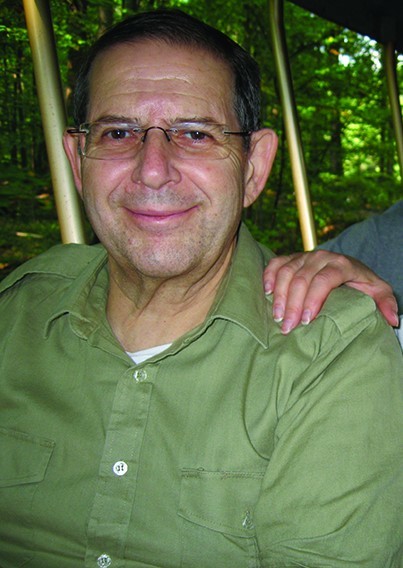
This story appeared in the November issue of VICE magazine. Click HERE to subscribe.In January 2015, US aid worker Warren Weinstein and Italian national Giovanni Lo Porto were accidentally killed in a top-secret CIA drone strike targeted at al Qaeda militants in Pakistan.The men died at a compound in the border region of Afghanistan and Pakistan where they were being held. US officials have said they had no idea Weinstein or Lo Porto was present when the drone strike was green-lit, despite surveillance.
Advertisement
In late April 2015, the Obama administration publicly acknowledged the drone strike and the two victims. President Obama personally accepted responsibility for the hostages' deaths, which was of little comfort to Weinstein's spouse, Elaine, who said the US government's efforts to assist her family during her husband's three-plus years in captivity were "inconsistent and disappointing."After the announcement, we filed a Freedom of Information Act (FOIA) request with the FBI, the agency that would have led the recovery efforts, for all records the bureau had on Weinstein. Initially, the request was denied. The FBI said the files were law enforcement records and exempt from disclosure under FOIA. We appealed, arguing that the FBI must have some records that wouldn't interfere with an investigation. The Justice Department's Office of Information Policy agreed with our argument, and a year later, the FBI turned over a batch of redacted records to VICE exclusively. The pages pertain to the Weinstein family's correspondence with Congressman John Delaney and Senators Barbara Mikulski and Bob Cardin, of Maryland, where the family resides, and provide the first behind-the-scenes look at internal government communications about Weinstein.
1. This is an email from a scheduler in Delaney's office to a person in the FBI's Office of Congressional Affairs requesting that the congressman be updated on Weinstein. It's tragic, as a result not of the content, but the date it was sent: February 23, 2015, a month after Weinstein's death.
Advertisement
2. This email reveals that the FBI supervisory special agent (SSA) who worked in the bureau's Office of Congressional Affairs emailed a member of the House Intelligence Committee and another FBI official (whose names were redacted for privacy reasons) about scheduling a briefing about Weinstein. The email, sent two months after Weinstein's death, raises questions as to whether the FBI knew at this point that Weinstein died in the drone strike. The FBI was trying to set up a call with the FBI's Deputy Assistant Director (DAD) of Operations Branch 1, [Jay] Tabb, at FBI Headquarters.The FBI's congressional-affairs liaison says the briefing needs to take place on an encrypted National Secure Telephone System (NSTS) line, known as a gray phone, which refers to the actual device, or on Secure Terminal Equipment (STE).
3. This cover sheet came from the Justice Department's "executive secretariat"—a part of the Office of the Deputy Attorney General (DAG) handling correspondence between the attorney general (AG), DAG, associate attorney general (ASG), and specific correspondence addressed to or from the Office of Legislative Affairs (OLA).4. This is a summary of the letter, along with specific questions sent to the AG (Loretta Lynch at the time), by Chuck Grassley (right), the chairman of the Senate Judiciary Committee, about a week after the casualties were revealed. Grassley's questions for Lynch were about reports published in the Wall Street Journal, which claimed that in 2012 the FBI helped facilitate a ransom payment to al Qaeda on behalf of Weinstein's family (which may have violated government policy). Grassley wanted answers not later than (NLT) May 14, 2015.
Advertisement
5. Grassley's correspondence was a high priority and was shared with the AG's office, a redacted section within that office, the DAG's office, the OLA, and the National Security Division (NSD).
6. This is a classified FBI summary (which VICE got declassified) of a briefing the FBI held for Senators Ben Cardin and Mikulski on March 10, 2014, about Weinstein. One of the FBI briefers was the Counterterrorism Division's DAD, Bryan Paarmann, and another FBI official whose name was redacted. The summary says Mikulski was trying to obtain guidance from the FBI on how she could help Weinstein's family without "doing any harm" to the investigation. Cardin had queries about "ransom" payments (bringing into question whether he was aware that one was allegedly made two years prior) and the importance of the intelligence community (IC) working closely with the Pakistanis. The FBI told the lawmakers that "quiet negotiations were the best way forward" to try and secure Weinstein's release, and they agreed.
7. Paarmann, and a State Department ambassador (DOS Amb) whose name was redacted (it was likely Anne Patterson, who was the ambassador for the division at the time) were briefers during this classified briefing on July 25, 2014. DOS/NEA refers to the Department of State's Bureau of Near Eastern Affairs and FBI/CTD refers to the bureau's counterterrorism division. AMCIT is "American citizen," and HFAC is the House Foreign Affairs Committee.8. The FBI included remarks Congressman Delaney (below) made stating that the Weinstein family was complimentary of the bureau (Weinstein's spouse did not criticize the FBI after the White House announced his death). Delaney asked whether he should write a letter to the Pakistani government and tie any cooperation to assist in efforts to rescue Weinstein to "the receipt of foreign aid."9. This is sad. To help Delaney correspond with Weinstein's family about the efforts to rescue Weinstein, the FBI proposed sending Delaney press releases containing unclassified, non-sensitive information to share with Weinstein's family. Delaney would have likely prepared a summary for Weinstein's family, possibly leading them to believe they were receiving inside information, as opposed to information that was already publicly released.Warren Weinstein's family is still negotiating with the US government to "come to closure on outstanding issues," including a so-called condolence payment, Elaine Weinstein said last September. The Obama administration reportedly paid the family of Lo Porto close to $3 million.This story appeared in the November issue of VICE magazine. Click HERE to subscribe.